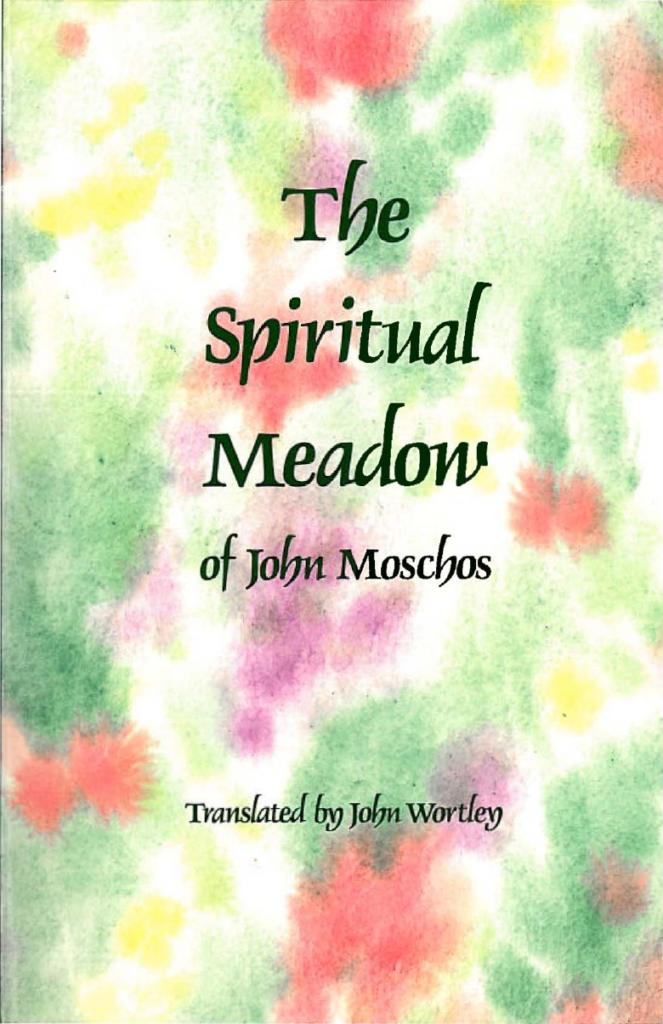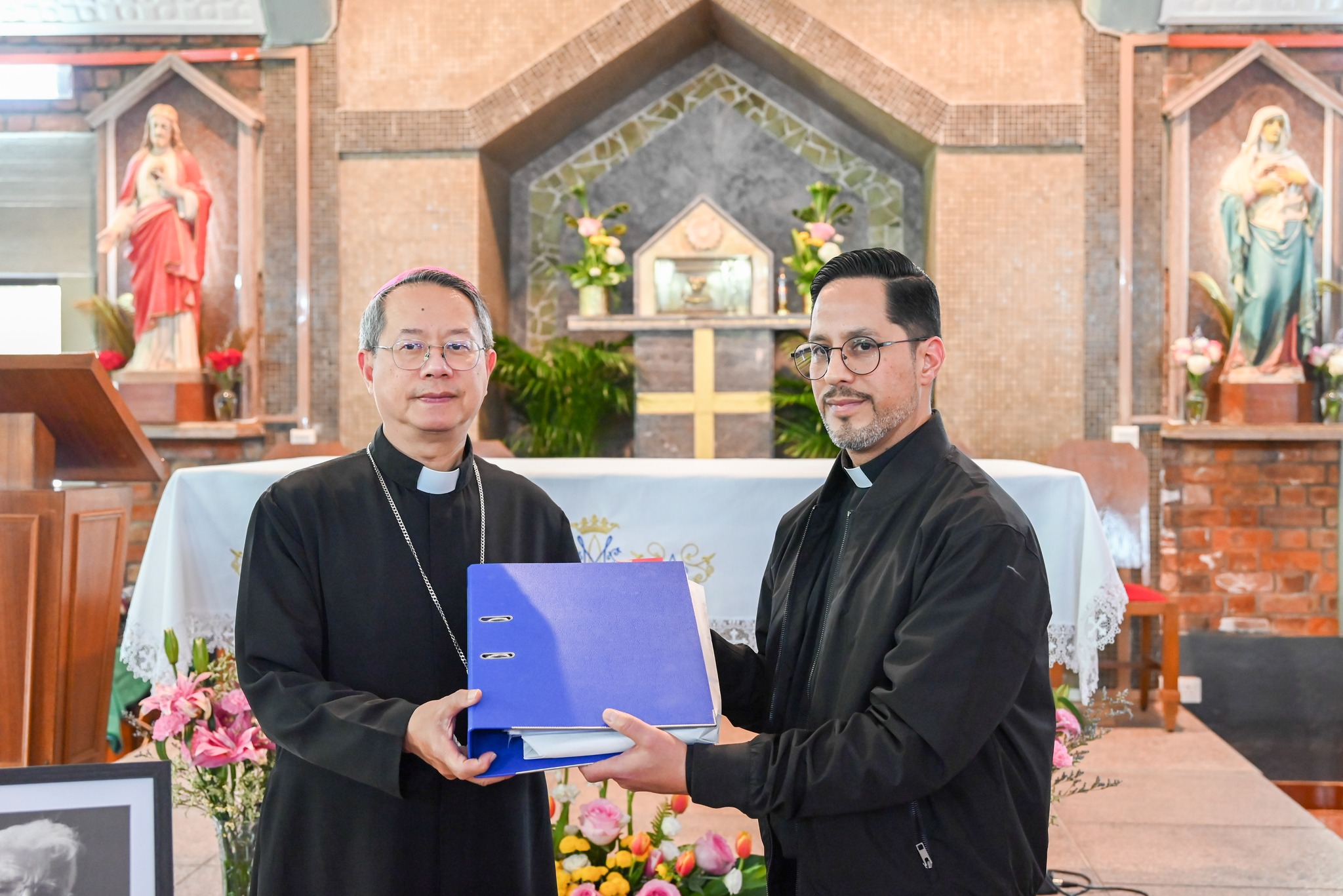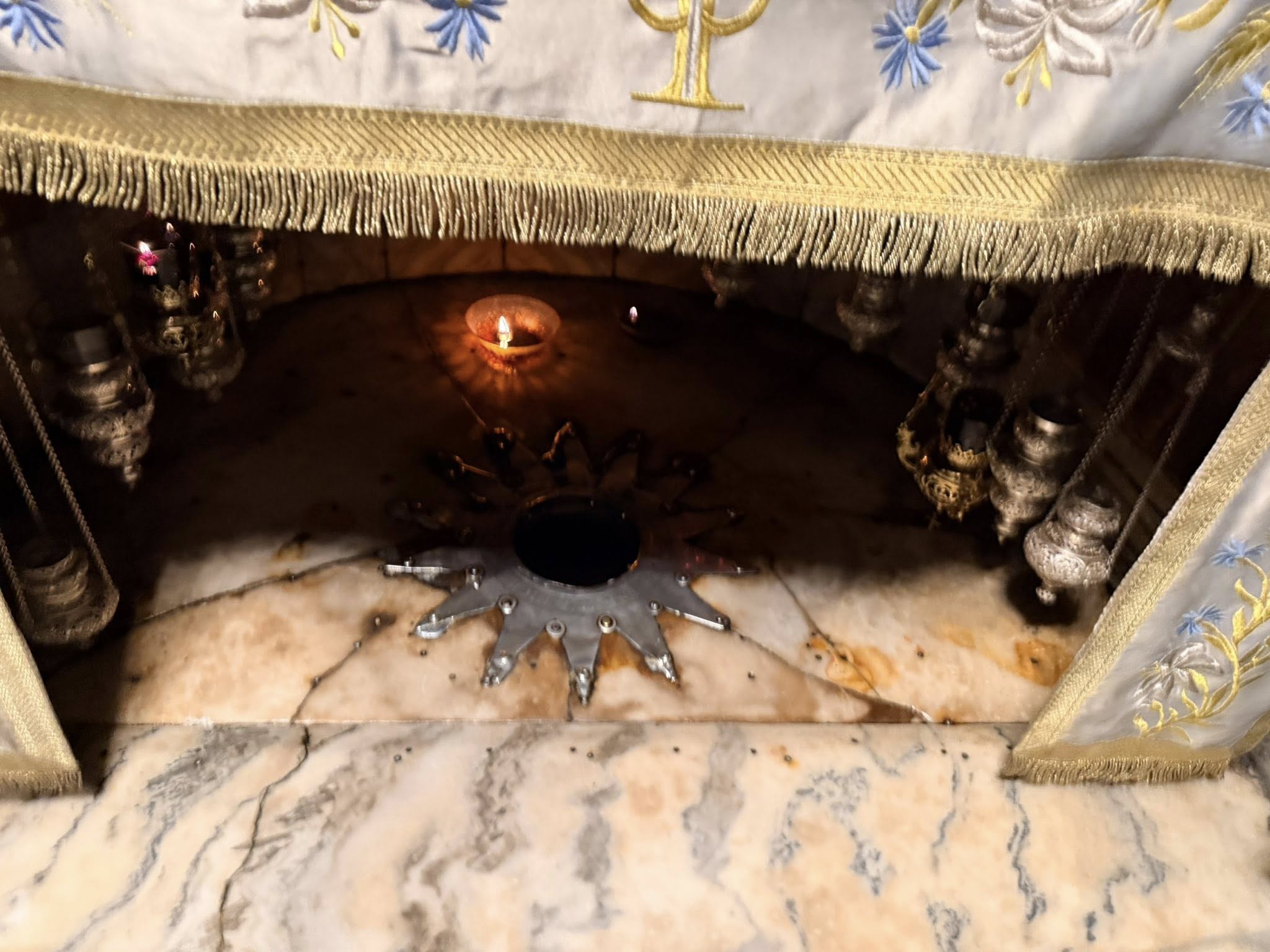– Anastasios
Today we talk of a companion of Sophronius of Jerusalem, John Moschus (550-619). He was a Byzantine monk who traveled with Sophronius extensively, and who died in Rome. His most important work is The Spiritual Meadow. It begins thus: “It is obvious to all, my beloved son, that the meadows present their most beautiful appearance in Springtime, with its pleasing variety of flowers of every sort, demanding the attention of all who gaze, impossible to ignore, beneficial in all sorts of ways, for they delight the eyes and give pleasure to the sense of smell.
Part of this meadow indeed flourishes with the colour of roses, part grows white with lilies, easily attracting the attention of the onlooker away from the colour of the roses. Other parts shimmer with the color of violets, copying in their own color the imperial purple. The profusion of various differing sights and fragrances of countless flowers everywhere gratify the senses. Think of this present work like this, Sophronius, my holy and most faithful son, since you will find in it the virtues of the holy men who have enlightened our time ‘planted by the running waters,’ as the Psalmist says (Psalms 1.3). And though all of them are acceptable to God and of great grace, yet each one of them is distinguished by some particular grace more than the others, so that out of this great variety of virtues arises a charming picture of pleasing beauty. Out of these flowers I have picked the most beautiful, and woven a corona for you out of this imperishable and everlasting meadow, my most faithful son, which I offer to you, and through you to everyone. For this reason it seems good to call this present work a Meadow, for the delight, comfort and usefulness which those who read may take from it. It is not only right belief and meditation on divine truth which lead to a life and morals of integrity, but also the examples of other people, and written accounts of their virtuous lives. Therefore I have undertaken this task trusting in the Lord, beloved son, and hoping that it will commend itself to your charity. Just as a bee seeks out only what is useful and true so I have I described the lives of the holy fathers that souls may be enlightened.” The book was, therefore, a collection of life of people that John Moschus wanted to present as examples of Christian virtues.
One example is the life of Conon, a monk: “When we visited Abba Athanasius in the monastery of our holy father Saba he told us of an Alexandrian presbyter called Conon who was in charge of Baptisms. The fathers had decreed that the high quality of his character made him worthy of baptising those who came seeking for it. So he anointed with the holy Chrism and baptised those who came. But whenever he had to anoint a woman he became so agitated that he wanted to leave the monastery. While battling with this thought the holy John Baptist appeared to him, saying: ‘Endure, and persevere and I will lift this burden from you.’ One day an attractive young Persian woman came to be baptised who was so beautiful that the presbyter could not bring himself to anoint her bare flesh with oil. When Archbishop Peter heard that the girl had already been there two days he was exceedingly angry with the old man, and even wanted to delegate this ministry to a deaconess, but refrained from doing so as he did not want to be seen to be doing anything contrary to the canons. But Conon the presbyter took his cloak and went, saying that he would not remain any longer in that place. He had got as far as the hills, when behold, the holy John Baptist met him in the way and spoke to him gently, saying: ‘Go back to your monastery and I will lift this battle from you.’ ‘I certainly will not go back,’ replied abba Conon indignantly. ‘You have so often made these promises and not fulfilled them.’
Then the holy John made him sit down and take off his clothes. He made the sign of the cross three times on his navel and said: ‘Believe me, presbyter Conon, I had been hoping that you would have been able to receive a reward because of this battle. As it is, however, look, I have taken this battle away from you, but you have forfeited any reward.’ The presbyter returned to the cenobium, to take up once more his baptismal ministry. The next day he anointed and baptized the young woman, hardly even noticing that she was, in fact, a woman. He continued the ministry of baptism for another twelve years in such tranquillity of mind and body that he never experienced any excitement of the flesh, nor consciously thought of anyone specifically as a woman. And so in peace he lived out his days.”
This tale of the struggle that every man and woman has to undergo is very edifying, as many other stories contained in this book.


 Follow
Follow


